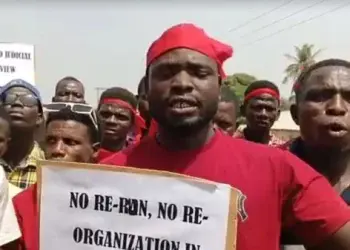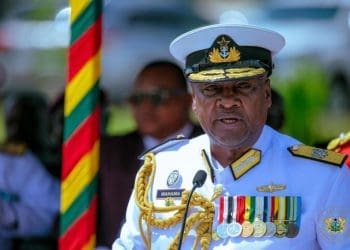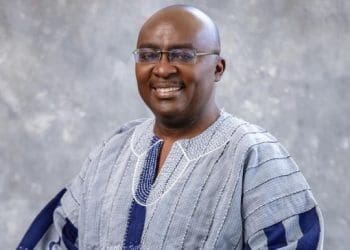Ghana’s Finance Minister, Dr Cassiel Ato Forson, has credited the country’s current debt sustainability gains to policies implemented by the previous New Patriotic Party (NPP) administration under former President Nana Addo Dankwa Akufo-Addo and former Vice-President Dr Mahamudu Bawumia.
Presenting the 2026 Budget Statement and Economic Policy to Parliament, Dr Ato Forson said Ghana has in the past two years “made remarkable progress in restoring debt sustainability,” following what he described as one of the most turbulent periods in the country’s economic history.
According to the Finance Minister, the government had, by the end of 2024, succeeded in restructuring 93.5% of Ghana’s total public debt.
He explained that this major milestone included $20.4 billion in domestic notes and bonds, $13.1 billion in Eurobonds, and $5.2 billion owed to bilateral partners.
The remaining 6.5% of the debt, he noted, is largely commercial and remains under negotiation.
Bondholders agreed to provide $4.4 billion in cash flow relief during the IMF programme, in addition to the cancellation of $4.7 billion of the debt stock.
Dr Ato Forson emphasised that debt restructuring is not an event but a process that builds on decisions and frameworks across different administrations, adding that the progress achieved reflects both continuity and a shared national commitment to restoring macroeconomic stability.
He described the signing of a Memorandum of Understanding with the Official Creditor Committee (OCC) in January 2025 as a major step forward in securing long-term debt relief and improving the credibility of Ghana’s fiscal reforms.
Parliament’s subsequent approval of the indicative terms in June 2025, followed by the signing of the first bilateral agreement with the French Republic in July, has, in his view, signalled renewed global confidence in Ghana’s debt management framework.
These developments, he said, demonstrate that the country is emerging from the uncertainty that characterised its engagement with external creditors during the peak of the economic crisis.
Dr Ato Forson stressed that the government’s current debt management strategy is fully aligned with the IMF’s Extended Credit Facility programme, which has guided Ghana’s fiscal consolidation and structural reforms since 2023.
He explained that the overarching objective is to ensure that Ghana’s financing needs are met at the lowest possible cost and at a prudent level of risk.
This objective, he said, is supported by several complementary efforts, including measures aimed at reducing refinancing pressures, lowering interest costs, expanding the domestic investor base, and enhancing the overall transparency and accountability of public debt operations.
The Finance Minister explained that reducing refinancing and interest rate risks has become critical as Ghana works to stabilise its debt trajectory.
Overreliance on short-term borrowing, he noted, had previously exposed the economy to sudden spikes in interest costs and rollover pressures.
By adopting a more balanced borrowing approach and extending average maturities where possible, the government hopes to minimise these vulnerabilities and build a more predictable and sustainable debt profile.
Lowering debt servicing costs, he added, remains central to creating fiscal space for priority investments in health, education, agriculture, and other sectors that drive inclusive growth.
Another important aspect of the strategy, he said, is the deepening of Ghana’s domestic debt market.
A more robust domestic market, according to the minister, would attract a broader base of investors and reduce the country’s dependence on external commercial borrowing, which has historically exposed the economy to exchange rate shocks and global market volatility.
Improving transparency in debt reporting and operations, he emphasised, is equally vital, as it strengthens public trust, enhances fiscal discipline, and assures both domestic and international partners that Ghana is committed to responsible financial management.
While highlighting progress, Dr Ato Forson acknowledged that challenges remain.
The unresolved commercial debt negotiations, he said, continue to require delicate engagement, given the complexity of creditor interests and the need for outcomes that do not compromise Ghana’s medium-term fiscal path.
He also cautioned that debt restructuring alone cannot guarantee long-term sustainability unless accompanied by strong domestic revenue mobilisation, expenditure discipline, and structural reforms designed to enhance productivity and competitiveness.
The Finance Minister assured Parliament that the government remains committed to consolidating the gains made and will continue to strengthen Ghana’s macroeconomic framework.
He emphasised that sustainable debt management is not a partisan achievement but a national imperative that requires consistency across political administrations.
As the country implements the 2026 Budget, he said, the focus will remain on rebuilding confidence, restoring fiscal stability, and laying the groundwork for a more resilient and inclusive economy.












